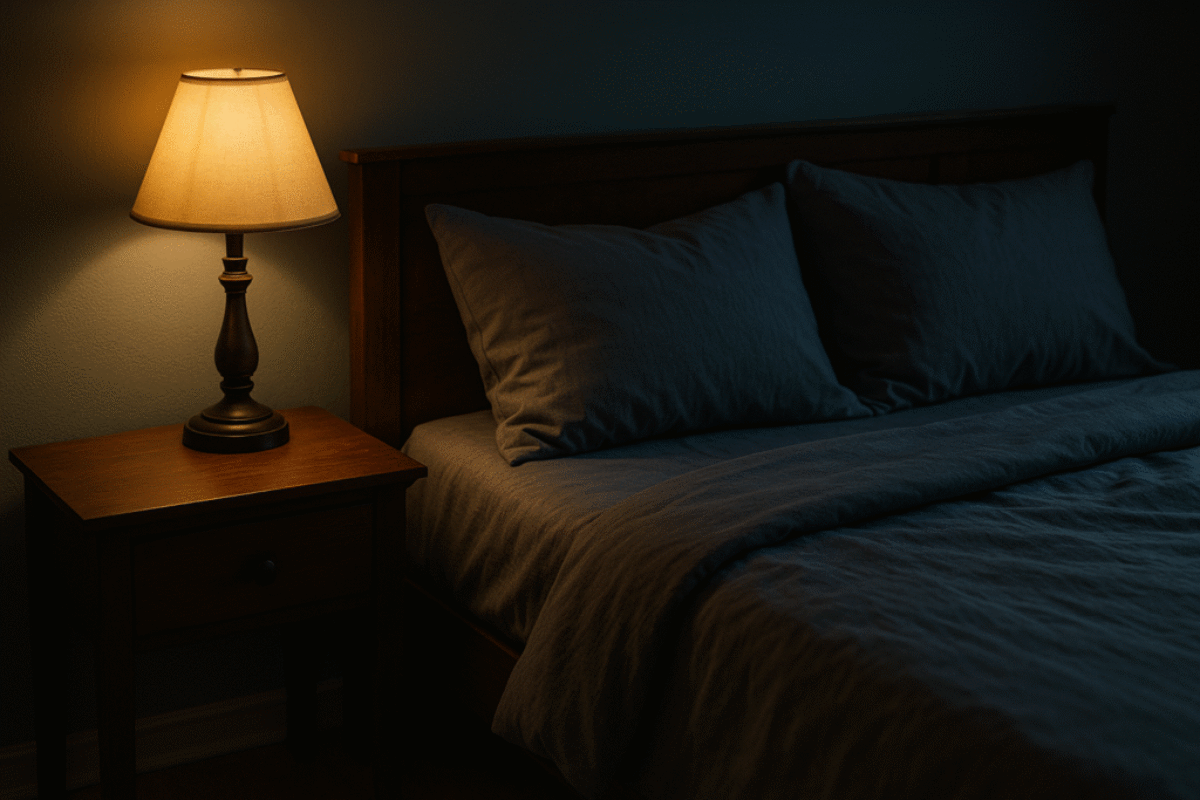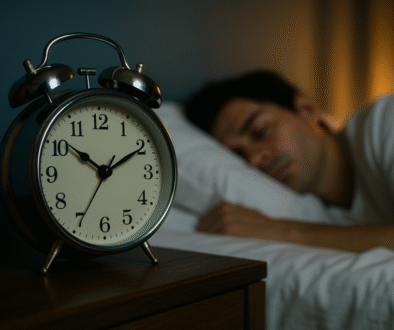Master Your Sleep with Science-Backed Strategies
Do you wake up feeling unrested despite “enough” hours in bed? You’re not alone – 70% of Americans report poor sleep quality regularly. But what if the solution wasn’t more sleep, but better sleep? Stanford neuroscientist Dr. Andrew Huberman reveals that improving sleep quality hinges on mastering two biological forces: adenosine buildup and circadian timing. By understanding these mechanisms, you can transform restless nights into deep, restorative sleep. By the end of this guide, you’ll have actionable tools to fall asleep faster, stay asleep longer, and wake up truly refreshed.
What Is Sleep Quality?
Sleep quality isn’t just about duration – it’s about cycling properly through sleep stages (light, deep, and REM sleep) without disruptive awakenings. High-quality sleep means waking up feeling restored, with improved focus and emotional balance throughout the day. As Dr. Huberman explains, “Sleep resets our ability to be focused, alert, and emotionally stable.” Poor sleep quality, conversely, sabotages everything from metabolism to mental health, even if you log 8 hours.
The Science Behind Sleep Regulation: Improve Sleep Quality
Your sleep is governed by two powerful biological systems:
-
Adenosine Drive: This sleep-pressure molecule accumulates the longer you’re awake (like an internal “hunger” for rest). Caffeine works by blocking adenosine receptors – explaining why afternoon coffee can wreck sleep.
-
Circadian Rhythm: Your internal clock uses light to time cortisol (wakefulness hormone) and melatonin (sleepiness hormone). As Huberman states: “Viewing sunlight early in the day is the foundation of proper sleep.” When light hits specialized eye cells (melanopsin ganglion cells), it sets a 12-14 hour timer for melatonin release.
Disrupt either system – with late-night screen time or irregular schedules – and sleep quality plummets.
5 Actionable Ways to Improve Sleep Quality
Tip 1: Master Your Light Exposure (The #1 Sleep Lever)
Huberman calls light “the most powerful tool for sleep quality.” Here’s how to use it:
-
Morning (Within 1 Hour of Waking): Get 2-10 minutes of sunlight without sunglasses. Cloudy day? Stay longer. Why? This triggers cortisol to suppress melatonin immediately, anchoring your circadian rhythm.
-
Sunset: View late-afternoon sunlight to “close” your circadian cycle. It prevents light sensitivity at night.
-
Night (Post-8 PM): Avoid overhead lights. Use dim, low-positioned lamps (table-level). Absolutely avoid bright light between 11 PM-4 AM – it suppresses dopamine, worsening mood.
Pro Tip: Can’t access sunlight? Use a 10,000-lux light therapy lamp for 30 mins at breakfast.
Tip 2: Time Caffeine Correctly
Caffeine’s half-life is 5-6 hours, but genetic differences mean tolerance varies wildly:
-
If you struggle with sleep, eliminate caffeine after 12 PM
-
“Tolerant” individuals can likely handle it until 2-3 PM
-
Never use caffeine to “mask” sleep debt – it disrupts adenosine cleanup
Tip 3: Adopt Non-Sleep Deep Rest (NSDR)
When naps aren’t feasible, try these science-backed alternatives that lower sympathetic nervous activity:
-
Yoga Nidra: 10-30 minute guided sessions (linked below)
-
Hypnosis: Dr. David Spiegel’s Reverie Health scripts rewire sleep patterns
-
Meditation: Apps like Headspace reduce pre-sleep rumination
Huberman: “NSDR resets your ability to engage in focused wakefulness.”
Tip 4: Optimize Your Sleep Environment
-
Temperature: Keep room cool (60-67°F)
-
Surface: Invest in a mattress matched to your sleep position and temperature needs (Helix offers personalized quizzes)
-
Darkness: Use blackout curtains – even small LED lights disrupt melatonin
Tip 5: Consider Targeted Supplements
After optimizing light and behavior, these may help (consult your doctor first):
-
Magnesium Threonate (300-400 mg): Boosts GABA for mental quietness
-
L-Theanine (100-200 mg): Promotes alpha brain waves (avoid if prone to vivid dreams)
-
Apigenin (50 mg): Chamomile derivative – avoid if estrogen-sensitive
Avoid melatonin supplements – they delay puberty in kids and most brands have wildly inaccurate dosing (some contain 400x the listed amount!).
Common Sleep Pitfalls & FAQs
Q: Can I “catch up” on lost sleep?
A: Partially. While one all-nighter requires multiple days to repay, consistent good sleep hygiene prevents debt accumulation.
Q: Are naps beneficial?
A: Yes, if <30 minutes and before 3 PM. Longer naps risk “sleep inertia” (grogginess).
Q: Why do I wake at 3 AM?
A: Likely cortisol spikes from circadian misalignment. Fix morning light exposure and avoid nighttime carbs.
Q: Does exercise timing affect sleep?
A: Yes! Morning exercise reinforces circadian rhythms. Avoid intense workouts within 2 hours of bedtime.
Q: How long until these strategies work?
A: Most see improvements in 2-3 days, but full circadian resets take 2-3 weeks of consistency.
Conclusion
Improving sleep quality isn’t about quick fixes – it’s about aligning with your biology. By harnessing light within 60 minutes of waking, minimizing artificial light after 8 PM, and strategically using NSDR practices, you can transform restless nights into deep, restorative sleep. Start tonight: put your phone away 90 minutes before bed and watch the sunrise tomorrow. Your brain will thank you!
Ready to dive deeper? Explore guide on Mastering Your Circadian Rhythm or learn about The Science of Sleep Stages.
Internal Links:
-
Mastering Your Circadian Rhythm → https://www.yoursite.com/circadian-rhythm-guide
-
Science of Sleep Stages → https://www.yoursite.com/sleep-stages-explained
External Links:

